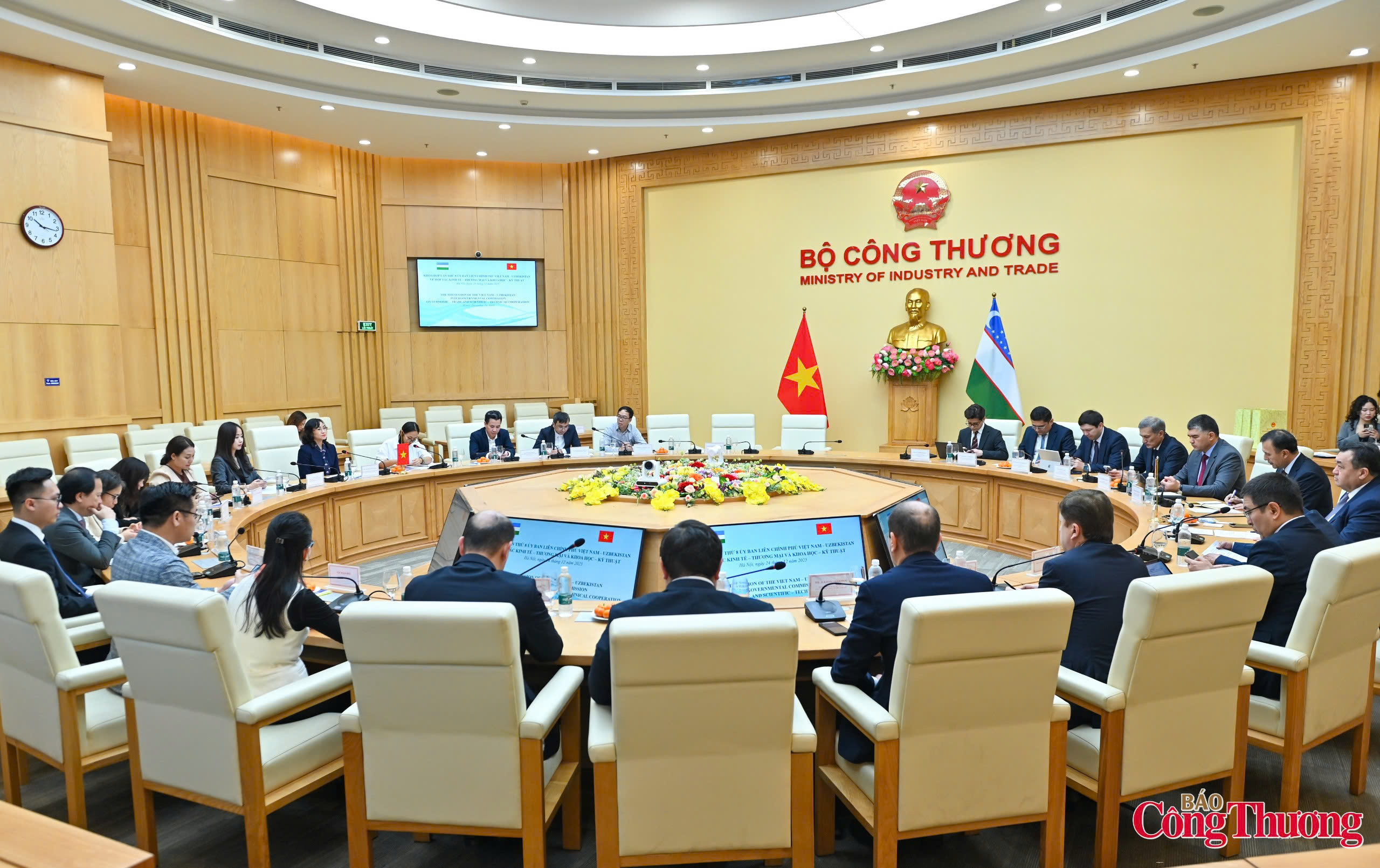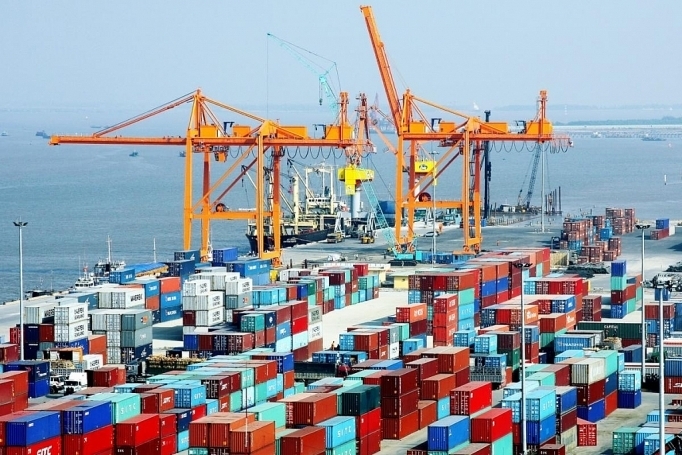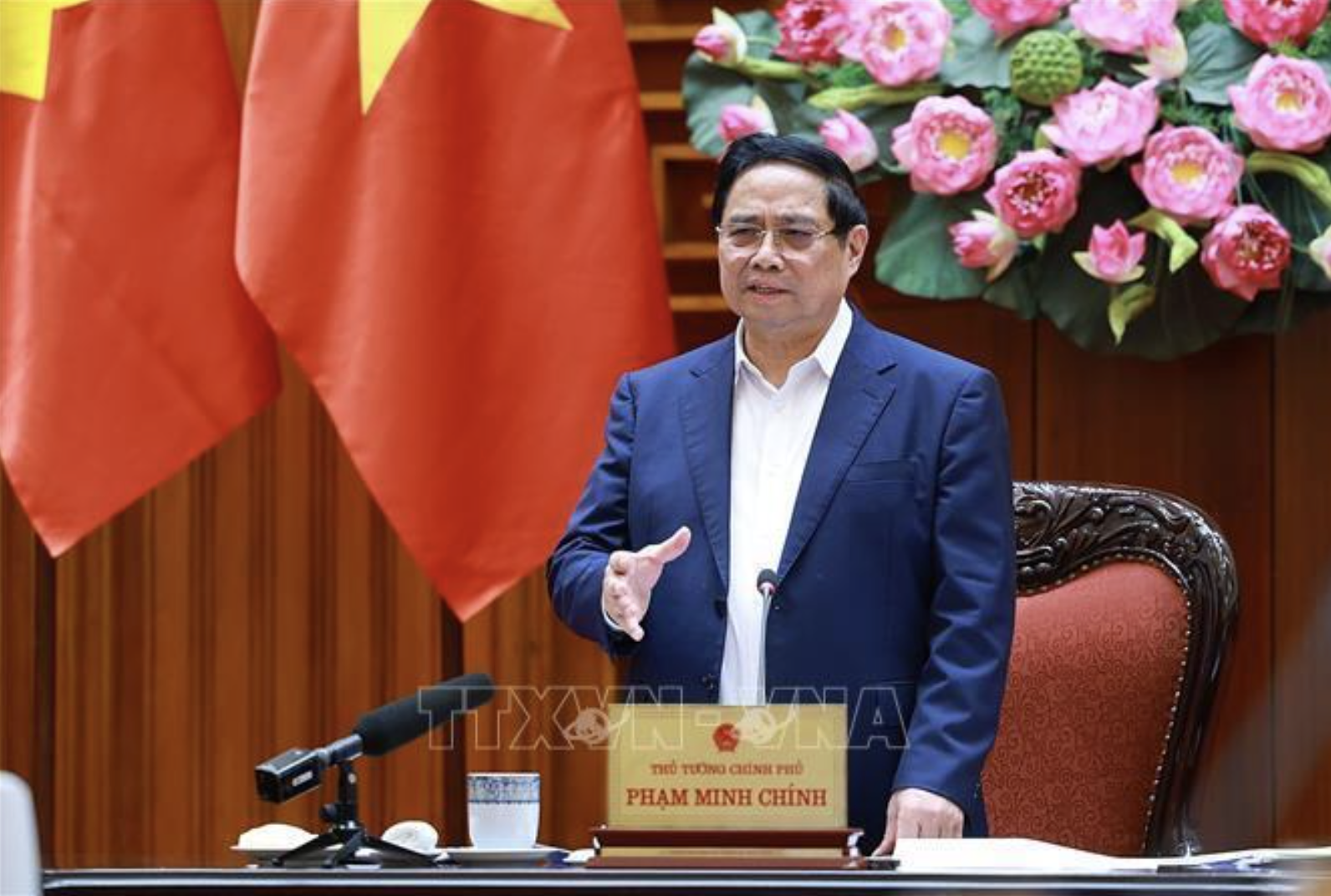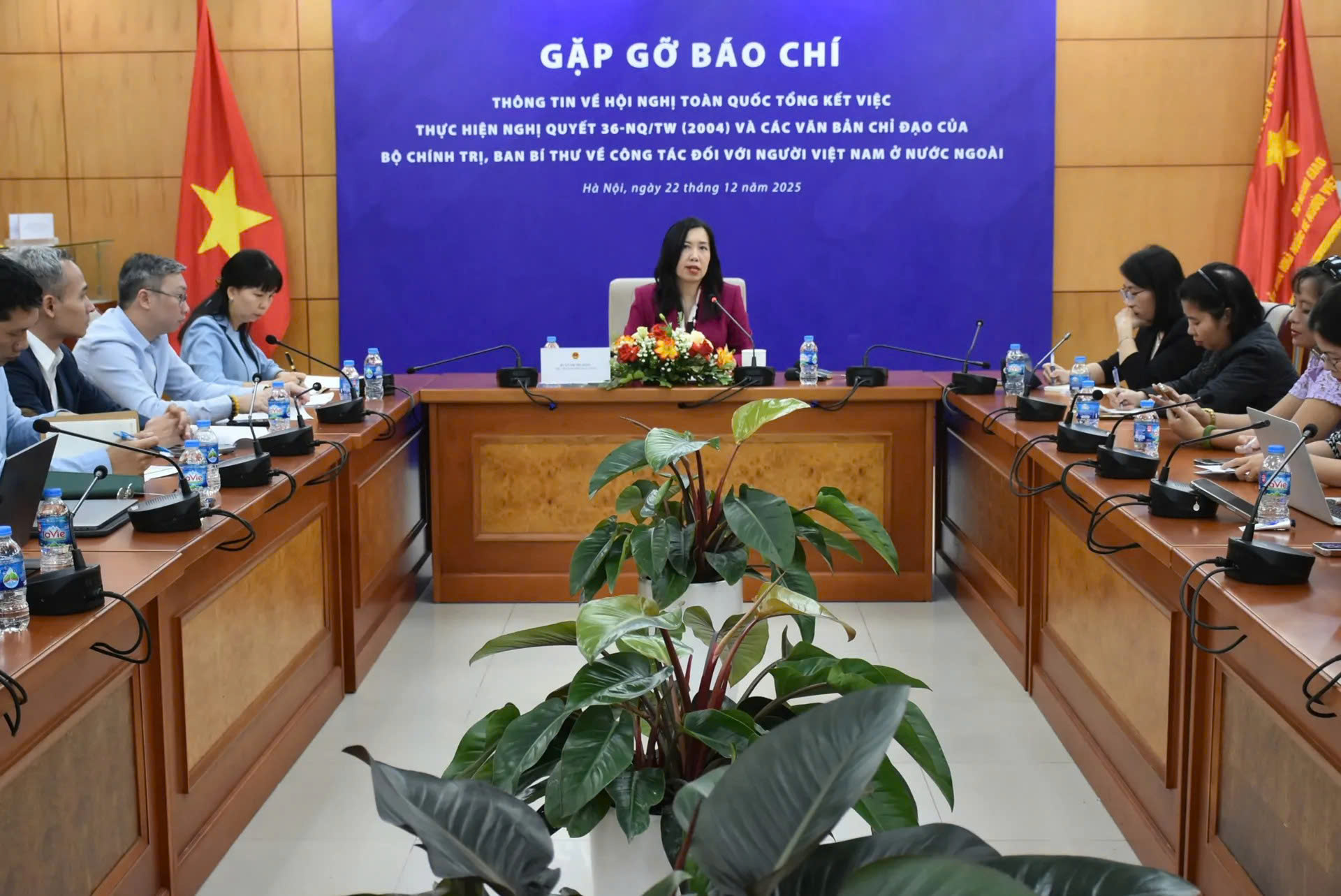
Vietnam, Uzbekistan propose joint trade working group mechanism
19:05 | 23/03/2025 10:32 | 25/12/2025Cooperation
Prime Minister Pham Minh Chinh has signed Official Telegram No.221/CD-TTg dated November 19, 2025. In the document, the Prime Minister instructs ministries, sectors and localities to give top priority to maintaining macroeconomic stability and boosting export expansion.
The document, sent to ministers, heads of ministerial-level and Government agencies, chairs of provincial and municipal People’s Committees, and leaders of State-owned groups and corporations, states that since early 2025, the Government and the Prime Minister have issued numerous directives. Ministries, agencies and localities have made concerted efforts to implement synchronised and effective macroeconomic management measures, expand markets, and promote export activities.

Vietnam’s export-import turnover has continued to expand, supporting macroeconomic stability.
As a result, macroeconomic conditions remained stable in the first 10 months of 2025; inflation was kept under control; growth was supported; and major economic balances were ensured. Total import-export turnover stood at USD 762.4 billion, up 17.4 per cent year-on-year, with exports reaching USD 391.0 billion (up 16.2%) and imports USD 371.4 billion (up 18.6%), posting a trade surplus of USD 19.6 billion.
However, amid a rapidly changing and unpredictable global environment where challenges outweigh opportunities, Prime Minister Pham Minh Chinh requested continued and stronger efforts to boost exports, contributing to the national growth target of over 8 per cent in 2025 while maintaining macroeconomic stability. He called on ministers, heads of agencies, provincial leaders, and executives of State-owned enterprises to rigorously and effectively implement relevant resolutions and conclusions of the Party Central Committee, the Politburo, key leaders, the National Assembly, the Government and the Prime Minister. Key tasks are as follows:
1. Ministries, agencies and localities
a) Maintain consistent priority on macroeconomic stability, inflation control and safeguarding major economic balances, thereby ensuring a favourable investment and business environment for rapid, sustainable growth.
b) Harmoniously and effectively coordinate monetary, fiscal and other macro policies to keep inflation in check in line with set targets.
2. The State Bank of Vietnam
a) Implement proactive, flexible and timely monetary policies; tighten inspection and supervision to ensure credit flows to production-business activities, priority sectors and key growth drivers while improving credit quality and controlling non-performing loans.
b) Manage exchange rates and interest rates in line with market conditions to support business operations and investment attraction.
3. The Ministry of Industry and Trade
a) Deliver robust export-promotion measures, especially during year-end and early-year periods when global consumption rises during Christmas and New Year holidays.
b) Strengthen trade promotion, diversify markets, products and supply chains; accelerate negotiations for bilateral and multilateral trade agreements with potential partners (GCC, Pakistan, Egypt, MERCOSUR, Algeria…); continue discussions on a reciprocal trade agreement with the US as directed.
c) Instruct overseas trade offices to step up support for Vietnamese businesses and assist localities, industry associations and enterprises in effectively utilising FTAs, including market intelligence, trade promotion, and connecting exporters with foreign importers, distributors and retailers.
d) Promote linkages between domestic enterprises and foreign-invested firms, enabling stronger participation of Vietnamese firms in global supply chains.
4. The Ministry of Finance
a) Continue implementing an expansionary fiscal policy in a targeted and efficient manner.
b) Review and develop suitable export and import tax rates aligned with international and regional integration commitments, creating favourable conditions for export growth and domestic production.
c) Develop support measures for businesses affected by the US reciprocal tax policies, with completion required within November 2025.
d) Direct customs authorities to coordinate with relevant units to strengthen quality control of goods undergoing customs procedures, preventing the import of low-quality products, intellectual property violations, and origin fraud.
5. The Ministry of Agriculture and Environment
a) Lead efforts to combat IUU fishing, lift the “yellow card” warning, invest in fisheries infrastructure and promote digital transformation for sustainable fisheries development.
b) Accelerate negotiations on market access and mutual recognition of food safety standards to open new markets for Vietnam’s fruits and vegetable products.
c) Develop geographical indications, product branding, plantation and farming area codes, and robust traceability systems; enhance scientific and technological application, innovation and digital transformation in agriculture.
6. The Ministry of Foreign Affairs
a) Strengthen economic diplomacy to expand markets and support businesses in export, investment and overseas operations.
b) Direct Vietnam’s overseas missions to enhance connections with localities, enterprises and associations to promote export activities.
c) Actively mobilise consensus among GCC member states to accelerate negotiations for the Vietnam-GCC FTA.
7. The Ministry of Industry and Trade, the Ministry of Agriculture and Environment, and the Ministry of Foreign Affairs
Establish task forces to promote new markets (Middle East, Africa, Latin America, etc.), address obstacles in existing FTAs, and expedite negotiations and signing of new FTAs in late 2025 and early 2026 (including Pakistan, Kuwait, Middle Eastern partners, Brazil, South America, Algeria…).
8. Provincial and municipal People’s Committees
a) Proactively identify and resolve difficulties facing businesses in production and export activities, providing timely support within their authority.
b) Localities involved in border-gate agricultural exports must regularly update information from border provinces and advise farmers, producers and exporters to plan harvesting, packaging and transport activities appropriately to prevent congestion and other negative impacts.
9. State-owned groups, corporations and exporting enterprises
Develop effective and adaptive production-business and import-export plans for the remaining months of the year; enhance the application of science and technology; improve branding, product quality and competitiveness; diversify markets, products and supply chains.
10. Deputy Prime Ministers
Deputy Prime Ministers, within their assigned areas, are responsible for monitoring, directing and urging the implementation of this Official Telegram.
11. The Government Office
Monitor and urge implementation within its assigned functions, and report to competent authorities on issues beyond its mandate.

19:05 | 23/03/2025 10:32 | 25/12/2025Cooperation

19:05 | 23/03/2025 23:11 | 24/12/2025News and Events

19:05 | 23/03/2025 23:06 | 24/12/2025Trade

19:05 | 23/03/2025 15:32 | 24/12/2025Trade

19:05 | 23/03/2025 16:32 | 23/12/2025News and Events